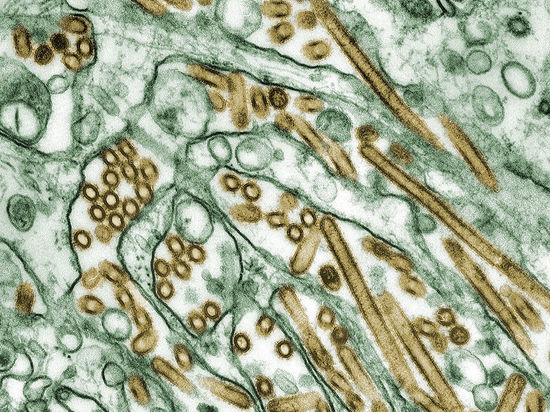The death of a girl from bird flu caused concern among experts
[ad_1]

The WHO said human cases of avian flu are “a cause for concern” following the death of a girl in Cambodia. The child died from a dangerous infection, and her father tested positive for the H5N1 virus, raising concerns about possible human-to-human transmission.
The discovery of two cases of avian flu in the same family in Cambodia has highlighted concerns about the potential human-to-human spread of the virus, although experts still believe the risk remains low.
On Thursday, Cambodian authorities said an 11-year-old girl from Prei Veng province had died of the H5N1 virus, and subsequent testing of 12 of her contacts showed her father also had the virus.
However, it remains unclear whether these two cases were the result of human-to-human transmission of the virus or the result of father-daughter close contact with H5N1-infected animals.
The World Health Organization said on Friday that increasing reports of bird flu in humans are a “worry”.
WHO Director of Epidemic and Pandemic Preparedness and Prevention Sylvie Briand says the UN agency is in close contact with Cambodian authorities for updates on the case and on tests of other people who came into contact with the deceased girl.
“It is still too early to say whether it is transmitted from person to person or under the same environmental conditions,” Briand said at a virtual press conference organized in Geneva.
“The global H5N1 situation is worrying given the widespread occurrence of the virus in birds around the world and the growing number of case reports in mammals, including humans,” she added. “WHO takes the risk of this virus seriously and urges all countries to be extra vigilant.”
Earlier this month, the World Health Organization rated the risk to humans from H5N1 avian influenza as low, although WHO Director-General Dr Tedros Adhanom Ghebreyesus said the recent spread of the virus to mammals needed close monitoring.
“Since H5N1 first appeared in 1996, we have seen only rare and short-lived transmission of H5N1 to and between people. But we cannot assume that this will remain so, and we must prepare for any change in the status quo,” he said.
H5N1, often referred to as avian influenza, is a highly infectious strain of the avian influenza A virus that can cause severe respiratory illness and death in birds, The Guardian recalls. Although it has caused outbreaks before, the current epidemic has devastated bird populations around the world, including wild birds and commercial poultry.
The virus is also known to be transmitted from birds to other animals as well as to humans, with the WHO noting that sporadic human cases are not unexpected as a result of contact with infected poultry or contaminated environments.
WHO data show that from January 2003 to January 5, 2023, there were 868 cases of human infection with the avian influenza A(H5N1) virus worldwide, of which 457 were fatal. However, since the beginning of 2021, there have been only six of these cases and two deaths.
Professor James Wood, chair of veterinary medicine at the University of Cambridge, notes that despite the current bird epidemic, there are no signs of a surge in human disease or mortality.
“Over the past few months and years, there has been a massive global problem of wild and domestic birds with the current H5N1 avian influenza virus that has infected many people; despite this, what is remarkable is how few people have been infected,” the expert said.
“As tragic as this case in Cambodia is, we expect there to be few cases of clinical illness with such a widespread infection. Clearly the virus needs close monitoring and surveillance to make sure it does not mutate or recombine, but the limited number of human cases has not markedly increased and this single case does not in itself signal a sudden change in the global situation,” he added. Professor Wood.
Jonathan Ball, Professor of Molecular Virology at the University of Nottingham, for his part, said the likelihood of further human-to-human transmission of the virus is very small, but it is important to monitor the circulation of influenza in bird and mammal populations and do everything possible to reduce the number of observed infections. “It also highlights why efforts to develop next-generation crossover vaccines are so important,” he said.
[ad_2]
Source link








